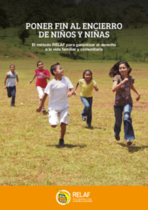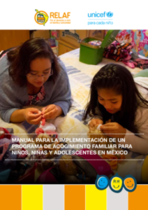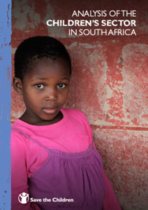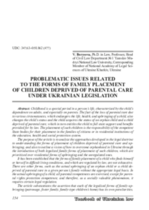Poner Fin al Encierro de Niños y Niñas: El método RELAF para garantizar el derecho a la vida familiar y comunitaria
El objetivo de este documento es identificar y transmitir las características del método que ha empleado RELAF para generar la adecuación de los subsistemas de protección integral de derechos de los niños privados de cuidados familiares o en riesgo de perderlos, haciendo énfasis en procesos de desinstitucionalización.




